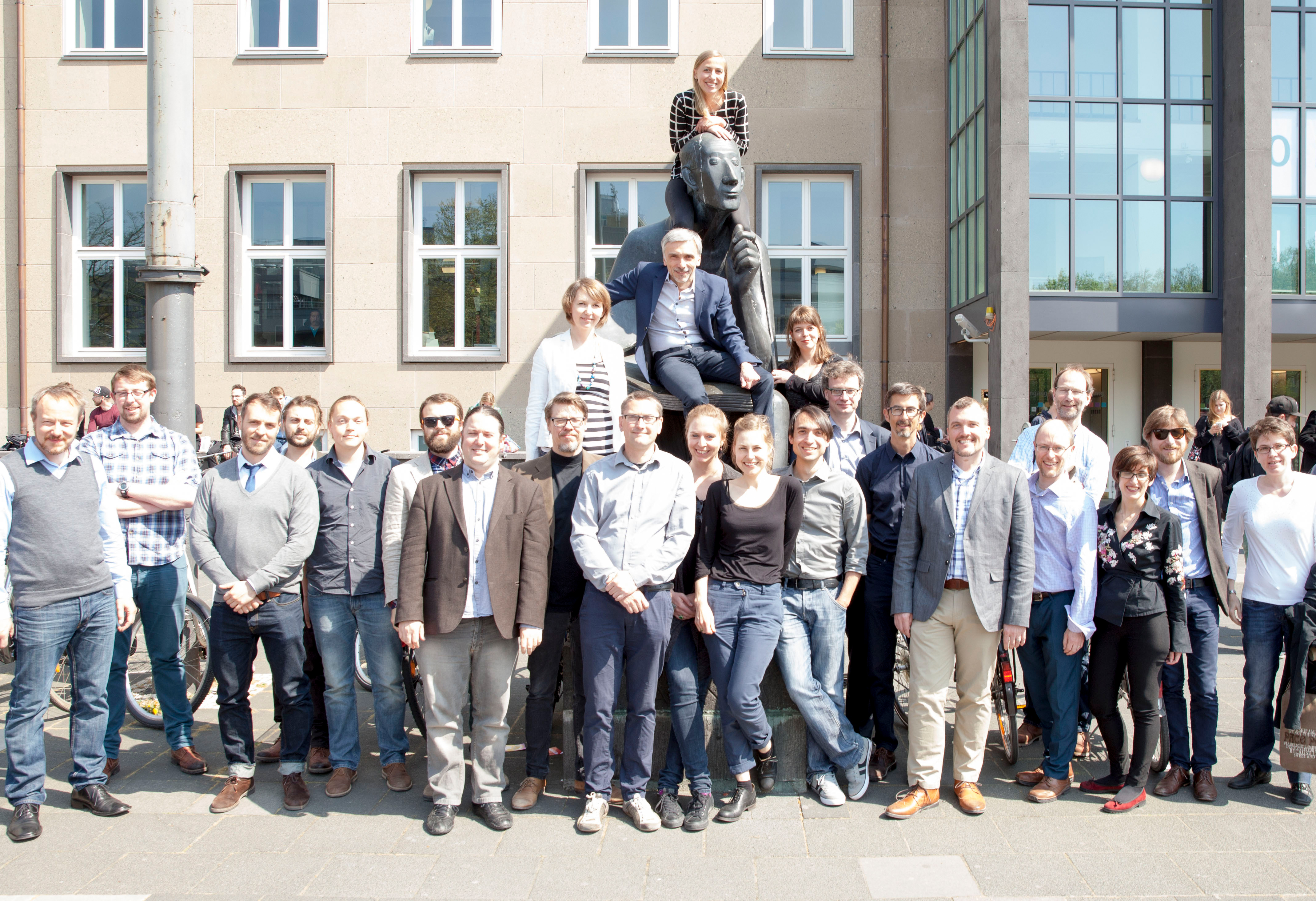
Link
Runtime
2013–2017
project participants
University of Cologne, University of Borås, Koninklijke Nederlandse Akademie van Wetenschappen (KNAW), King’s College London (KCL), University of Antwerp, Karl-Franzens-Universität Graz, National University of Ireland – Maynooth, École des Haute Études en Sciences Sociales (EHESS), Università di Roma ‘La Sapienza’, University of Oxford. Network coordination: Prof. Dr. Dr. h.c. Andreas Speer. For a list of all participants, see http://dixit.uni-koeln.de/partners/.
Funding
Funded by the EU in the Seventh Research Framework Program.
Description
The Digital Scholarly Editions Initial Training Network (DiXiT) was a research network funded by the EU as part of the Marie Skłodowska-Curie Actions for the education and training of doctoral and postdoctoral researchers. The network was coordinated by CCeH staff and comprised 10 partner institutions as well as 18 associated partners and an External Expert Advisory Board. From September 2013 to August 2017, the network funded 12 Early Stage Researchers (ESR) and 5 Experienced Researchers (ER) fellowships and also organized and supported three training camps, three conferences, a summer school and a large number of additional events. Teaching and presentation materials were made freely available. The proceedings of the three main conferences have been published as a volume (see Publications).
In terms of research goals, DiXiT focused on the further development of theories and technological standards in the field of digital scholarly editing. To this end, the work program was divided into three subject areas:
In WP1 (Concepts, Theory, Practice), the first research focus of DiXiT aimed to evaluate and map different types of digital scholarly editions in a typology of existing and future editions, which can range from “digital archives” to “knowledge sites”. This mapping included projects with large amounts of material as well as authoritatively established readings of important works from all areas of history and human culture.
WP2 (Technology, Standards, Software) focused on the integration of web-based tools into the TEI ecosystem to enable collaborative and standards-based editing.
In WP3 (Academia, Cultural Heritage, Society), one of the focal points examined the relationship between museums, libraries and archives on the one hand and academics on the other and how the quality of digital images and texts can be measured, safeguarded and improved.
For information on the network’s other research priorities, see http://dixit.uni-koeln.de/about/.
Publications
Advances in Digital Scholarly Editing: Papers Presented at the DiXiT Conferences in the Hague, Cologne, and Antwerp, ed. by Peter Boot [et al.], Leiden: Sidestone Press, 2017. [PDF]
Picture credits
Group picture of the DiXiT Fellows and Supervisors, April 24, 2015, University of Cologne.